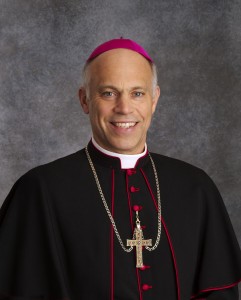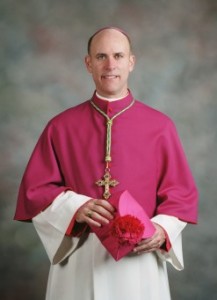Five Reasons to Participate in the March for Marriage

The countdown begins! One week from today – March 26 – is the March for Marriage in Washington DC. Below are five reasons why you should attend. Or, if you can’t make it in person, consider devoting some time to prayer and/or fasting on March 26 for the preservation of marriage as the union of one man and one woman.

Pope Francis
1. When Pope Francis was archbishop of Buenos Aires, he encouraged the Catholic faithful to march for marriage. The year was 2010 and the Argentinean legislature was debating whether or not to redefine marriage. According to Zenit news, then-Cardinal Bergoglio “appealed to parish priests, rectors and chaplains of churches to facilitate the participation of the faithful” in a planned march and demonstration against redefining marriage. The marchers united under the motto “We want a mommy and daddy for our children” and Cardinal Bergoglio encouraged them to keep the tone positive. Read more about Pope Francis’ defense of marriage and family during his time in Buenos Aires.

2. Catholic Social Teaching is clear that marriage and the family are essential to the common good. “The family, the natural community in which human social nature is experienced, makes a unique and irreplaceable contribution to the good of society” (Compendium of the Social Doctrine of the Church, no. 213). The family, “born of the intimate communion of life and love founded on the marriage between one man and one woman,” is indeed “the first and vital cell of society” (no. 211). The importance of marriage and the family to the common good is why the Church works tirelessly to enact laws that recognize and support marriage’s authentic meaning as the union of one man and one woman. According to the Compendium, society and state institutions are called “to guarantee and foster the genuine identity of family life and to avoid and fight all that alters or wounds it” (no. 252). (From the March 1 Call to Prayer / Friday Fast reflection.)

Archbishop Salvatore J. Cordileone
3. There is a great lineup of speakers. Speakers at the rally following the March (see full schedule here) include Archbishop Salvatore Cordileone, chairman of the USCCB Subcommittee for the Promotion and Defense of Marriage; Dr. Jennifer Roback Morse, founder and president of the Ruth Institute; Robert Oscar Lopez, an English professor who has written on the experience of being raised by a mom in a same-sex relationship; Doug Mainwaring, who recently wrote an article about his opposition to marriage redefinition as a man with same-sex attraction; Rev. Bill Owens, Sr., founder and president of the Coalition of African-American Pastors; and more.

Bishop Kevin Rhoades
4. The March for Marriage has the support of Catholic bishops. In a February 25 letter sent to all U.S. bishops, Bishop Kevin Rhoades, chairman of the USCCB Committee on Laity, Marriage, Family Life and Youth, and Archbishop Salvatore Cordileone, chairman of the USCCB Subcommittee for the Promotion and Defense of Marriage, encouraged participation in the March. The bishops wrote, “The march will be a significant opportunity to promote and defend marriage and the good of our nation, to pray for our Supreme Court justices, and to stand in solidarity with people of good will. … We are deeply grateful for any support you can offer for this march.”

5. We are on the cusp of a momentous Supreme Court decision. On March 26, the day of the March for Marriage, the Supreme Court will hear oral arguments for one of two cases about marriage law currently under its review, Hollingsworth v. Perry (about California’s Proposition 8; read the USCCB brief here). On March 27, the Court will hear oral arguments for the other case, United States v. Windsor (about the federal Defense of Marriage Act or DOMA; read the USCCB brief here). The Court is expected to rule on both cases by the end of June. As explained in a USCCB press release about these cases, “Depending on the Court’s ruling, there could be ramifications for marriage laws throughout the country.” (Keep in mind that currently 41 states do not recognize marriages between two persons of the same sex.) Highlighting the potential scope and severity of the Court’s ruling, Archbishop Joseph Kurtz compared it to the wide-ranging and hotly-contested 1973 ruling that legalized abortion throughout the country, Roe v. Wade. As Archbishop Kurtz put it in November 2010, “Today is like 1970 for marriage. If, in 1970, you knew that Roe v. Wade were coming in two or three years, what would you have done differently?”
One possible answer to the Archbishop: attend the March for Marriage! Or prayerfully participate from a distance, recognizing, as the bishops do, the importance of prayer, witness, and sacrifice in renewing a culture of marriage.